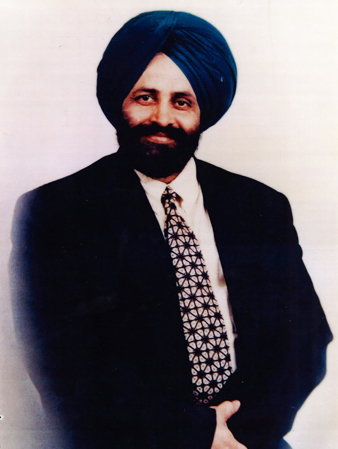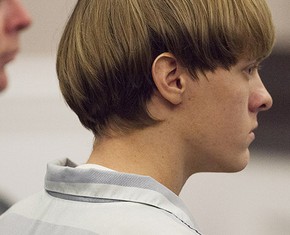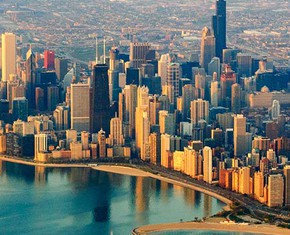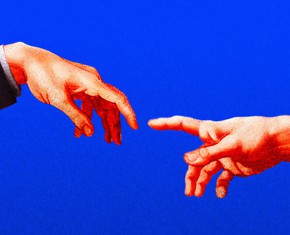The views expressed in our content reflect individual perspectives and do not represent the authoritative views of the Baha'i Faith.
Beware, beware, lest any of you seek vengeance, even against one who is thirsting for your blood. Beware, beware, lest ye offend the feelings of another, even though he be an evil-doer, and he wish you ill. – Abdu’l-Baha, Selections from the Writings of Abdu’l-Baha, p. 73.
After the destruction of the World Trade Center on 9/11/2001, many Americans—and people from all over the world—prayed for peace and reconciliation. Huge peace marches took place in major cities and small towns all around the globe, and Americans experienced an outpouring of sympathy and goodwill.
But some people, sadly and predictably, felt the need for personal revenge.

Balbir Singh Sodhi
The first person to become the target of such misplaced vengeance in the United States, just four days after the 9/11 tragedy, Balbir Singh Sodhi died at his Mesa, Arizona gas station a hail of bullets. A 45-year-old aircraft mechanic named Frank Roque drove his pickup truck into Sodhi’s gas station and gunned him down with five shots from a handgun. Roque, who had been drinking and ranting about immigrants at a sports bar in Mesa, had earlier vowed to “kill some A-rabs and towel-heads” as a response to the 9/11 attacks.
Mr. Sodhi was a Sikh, not an Arab. He had a beard and wore a turban. At the time of the shooting, Sodhi and a landscaper were planting flowers around the perimeter of his gas station. Sikhs, from a peaceful religious group which originated in India, had absolutely nothing to do with the terrorism of the 9/11 tragedy.
Mr. Roque drove away from Mr. Sodhi’s Chevron station, and then shot at a Lebanese-American clerk at another gas station in Mesa. He missed. Roque then drove to his former residence, which had been sold to an Afghan-American family, and fired multiple shots into the house. Luckily, no one was injured or killed there. Then Roque went to another local bar and boasted about what he had done. After his arrest, Mr. Roque was initially tried, convicted and sentenced to death, but Arizona’s Supreme Court later commuted his death sentence, citing his “low IQ” as a mitigating factor. Roque is now serving life in prison for his crimes.
This horrible, mistaken-identity hate crime, followed by many more post-9/11 revenge attacks on people of Middle-Eastern descent across the United States, has now become a cautionary tale, not just for individuals but for entire civilizations. Instead of reacting in a knee-jerk fashion, political leaders and military leaders and opinion leaders now have the responsibility to carefully evaluate the potential unexpected consequences of their words and actions; and then determine what actions will best lead to real and lasting solutions and result in enduring peace.
Instead of seeking revenge, society must seek justice. Instead of seeking a short-term political gain, societies must seek long-term security. Instead of vengeance, our cultures must find reasonable and understandable ways to punish and prevent further terrorism:
As for the body politic, it punishes the aggressor but not to exact revenge. The purpose of this punishment, rather, is to deter and dissuade, and to oppose iniquity and aggression, so as to prevent others from extending their hand likewise in oppression. – Abdu’l-Baha, Some Answered Questions, newly revised edition, p. 308.
Naturally, people feel anger after every terrorist assault. When the innocent suffer and die, we all want to do something to respond. In the face of those difficult realities, what can each of us do, as individuals? What action should we personally take—justice or forgiveness?
The Baha’i teachings ask us to collectively seek justice, as a collective, societal function of our governance; but to individually find a way to forgive our enemies, just as Christ counseled:
In sum, the proper functioning of the body politic depends upon justice and not forgiveness. So what Christ meant by forgiveness and magnanimity is not that if another nation were to assail you; burn your homes; plunder your possessions; assault your wives, children and kin; and violate your honour, you must submit to the tyrannical host and permit them to carry out every manner of iniquity and oppression. Rather, the words of Christ refer to private transactions between two individuals, stating that if one person assaults another, the injured party should forgive. But the body politic must safeguard the rights of man. This, if someone were to attack, injure, oppress and wound me, I would in no wise oppose him but would show forgiveness. – Ibid., p. 312.
Hopefully, after the horrors of Paris and Beirut and Mali and Nigeria and the massive devastating death toll of the wars in Iraq and Syria, humanity can unite to intelligently find constructive ways to bring such destructive fanaticism, hostility and violence to an end.
But how can that happen? How can we individually combat such fanaticism?
The Baha’i teachings have a suggestion for a way we can all begin:
Everyone must do away with false prejudices and must even go to the other churches and mosques, for, in all of these worshipping places, the name of God is mentioned. Since all gather to worship God, what difference does it make? None of these worship Satan. The Muslims must go to the churches of the Christians and of the Jews and vice-versa, the others must go to the Muslim mosques. They hold aloof from one another merely because of unfounded prejudices and dogmas. In America, I went to the Jewish synagogues, which are similar to the Christian churches, and I saw them worshipping God everywhere. In most of these places I spoke to them about the original foundations of the divine religions and I explained to them the proofs of the validity of the divine prophets and of the holy Manifestations. I encouraged them to do away with blind imitations. All of the leaders must, likewise, go to the churches of one another and speak of the foundation and of the fundamental principles of the divine religions. In the utmost unity and harmony, they must worship God, in the worshipping places of one another and they must abandon these false fanaticisms. Man must be possessed of sincerity and love and must be in a state of peace and safety. When you mention God to me, I must be pleased with you. The mention of God is good, no matter by what tongue. – Abdu’l-Baha, Star of the West, Volume 5, p. 37.
















Comments
Sign in or create an account
Continue with Googleor